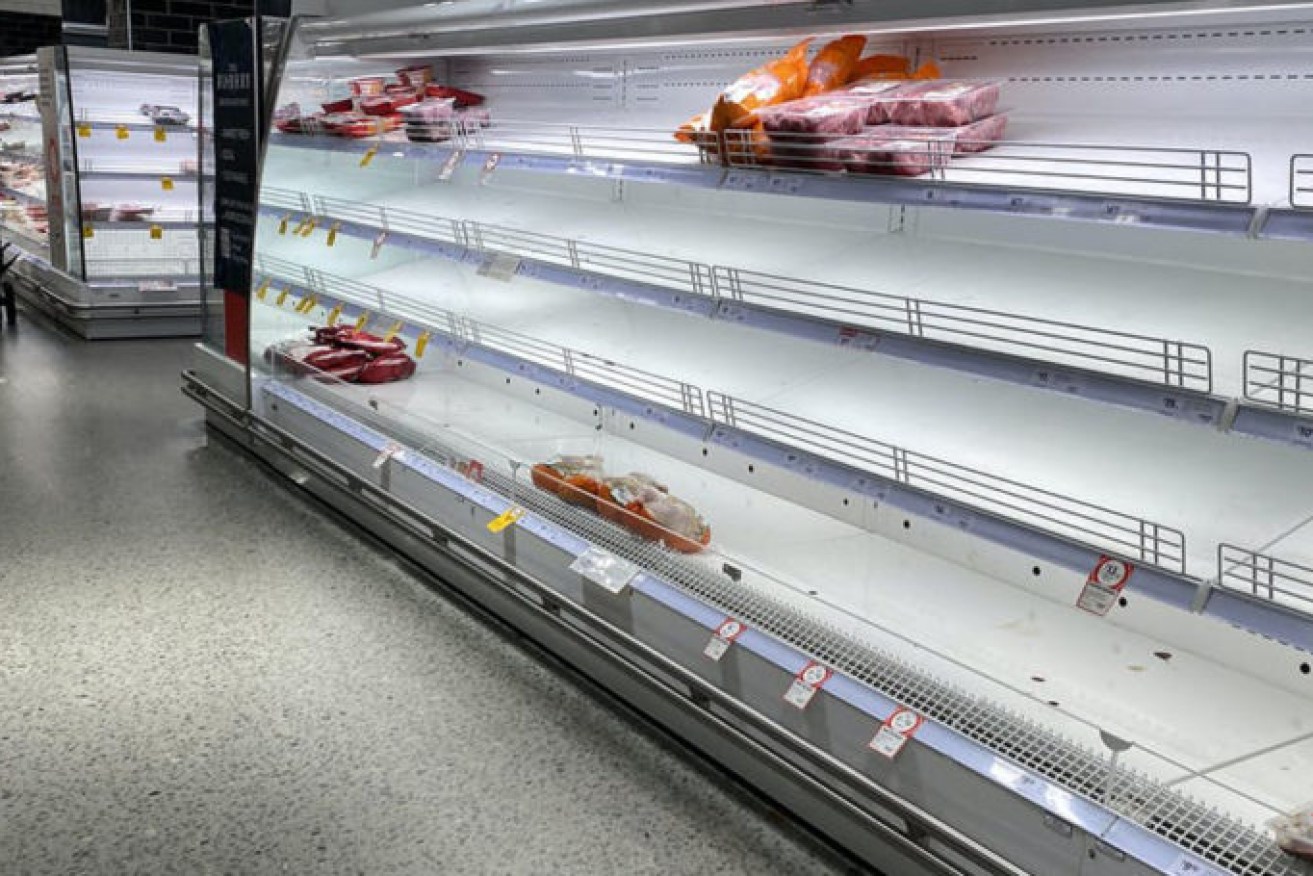Farmers warn climate crisis will empty shelves and raise food prices
Empty supermarket shelves will become a common sight unless urgent action is taken to combat climate change, a new report has warned.

Supermarkets in flood affected regions on Australia's east coast are again experiencing shortages. Picture: Mick Tsikas/AAP
Advocacy group Farmers for Climate Action says Australians are already paying more for essentials such as meat, bread and fruit as environmental challenges make it harder for producers to transport food from farms to supermarkets.
And the prospect of severe droughts in future could take some products off the shelves for good.
As ongoing floods lead to grocery shortages in northern New South Wales and south-east Queensland, the FCA said in the report released today that more must be done to reduce emissions and improve resilience.
Among other things, they called on the government to set up alternative supply lines for when extreme weather events shut off roads and train lines.
“A lack of action will make it virtually certain that in coming decades Australians will, for the first time, face the prospect of running out of food in our major towns and cities,” the report said.
“Decisive action today will help moderate the worst impacts.”
‘Not a distant prospect’: Warning for food supplies
Former senior public servant Stephen Bartos was commissioned to write the report and consulted with farmers and transport firms to determine how climate change was affecting them.
He was told the effects were already being felt, particularly after floods in South Australia in January that knocked out a vital rail transport link to Western Australia and triggered food shortages as a result.
The floods in Queensland and northern NSW also affected food supplies by cutting off trucks and trains from supermarkets in those areas.
Without alternative supply lines for when floods or bushfires knock out roads and railways, Bartos said such supply disruptions will become more common as the climate crisis makes natural disasters more frequent.
“We’re already seeing empty supermarket shelves,” Bartos said.
“It’s not a distant prospect anymore – it’s very much upon us.”
Farmers also said the prospect of more severe droughts could make some products unavailable for consumers or push up prices.
Lower crop yields, livestock stress and higher operational costs were all cited as key climate impacts, they reported.
Even the threat of bugs infecting livestock with deadly viruses after floods is a present threat, following warnings from scientists about an outbreak of Japanese Encephalitis in Queensland this week.
And even where supplies aren’t totally disrupted, supermarket prices will rise.
“Some impacts of climate change affect every part of the supply chain,” the report said.
“Due to the uncertainty created by climate change, insurance and bank loans are becoming harder to obtain and more expensive,” it continued.
“These costs are rising and will be passed through to consumers.”
Government must help farmers adapt
Bartos said the government must step in and help farmers adapt.
In addition to setting up alternative supply lines, governments should help industries hold additional food stocks in case of emergencies, the report recommended.
Farmers should also be supported in developing new low-emissions standards to “tackle the root causes” of climate change, Bartos said.
“Australia still has plenty of food. The shortages we’ve seen has been because transport links into supermarkets were disrupted,” he said.
“That’s clearly a role for government.”
Bartos said farmers are already adapting to climate change but need “more information” from governments, particularly around standards for emissions reductions in their businesses.
He said this is already the case in Europe, where food purchasers are looking for indications that carbon emissions are being reduced “at all stages of the supply chain”.
“One farmer I spoke to said they’re looking to adopt European standards because there aren’t any to adopt in Australia.”
This article was first published by The New Daily. Read the original article here.




